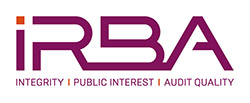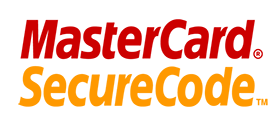IRBA TURNS ITS ATTENTION TO PROMOTING MEASURABILITY AND TRANSPARENCY IN AUDIT
| Johannesburg, Saturday, February 18 2017 - Continuous improvement in audit quality is a priority for the Independent Regulatory Board for Auditors (IRBA). As such, it believes that introducing audit quality indicators (AQIs) as a measure for the outcomes of audits could be invaluable in the financial reporting value chain to improve measurability and transparency for shareholders, as well as assist audit committees in selection and appointment of auditors.
Says Bernard Agulhas, CEO of the IRBA: “Audit quality is a complex concept and it has proven difficult to achieve a common accepted definition as there are a number of variables that contribute to audit quality. Elements such as rigorous audit and quality control systems, strong ethics, values and an appropriate attitude of scepticism, knowledge, experience and time, interactions, outputs and contextual factors have been recognised by international regulators as all contributing to audit quality or lack thereof. “Critical to this is the quality of key interactions such as those between auditors and management, or audit committees and auditors, which must be independent and robust, and the quality of outputs such as the auditors’ report, annual reports, inspections reports and audit firm transparency reports. Contextual factors include the quality of laws and regulations governing financial reporting, applicable financial reporting frameworks and adherence to corporate governance best practice. “As the IRBA, we continue to emphasise the important role AQIs should play in assisting audit committees and boards in their responsibility to oversee the quality of an audit. Although not a complete solution for audit committees, AQIs have a positive impact as they focus the committee’s attention on quality as opposed to competitive pricing alone, and also raises awareness of audit quality. At the same time, it provides audit committees with a tool to assess the external auditor and enables them to make more informed decisions.” In terms of the Companies Act, audit committees of companies have certain duties regarding the remuneration and appointment of auditors, including oversight over auditor independence. The IRBA cautions that inspections are based on a risk-based approach, with limited scope in many instances, meaning that while inspections are performed with the objective to promote audit quality, the results should not be taken out of context. Furthermore, currently under the Auditing Profession Act, these cannot be made publicly available by the audit regulator at an individual firm level, although it does annually publish a public inspections report. The IRBA’s Public Inspections Report for 2016 is due for release within the next few weeks. “Nevertheless,” says Agulhas, “audit committees should request from the audit firm (and engagement partner) the most recent IRBA inspection result and report, or internal quality control results, to utilise alongside other measures such as evaluating the firm’s financial stability and reputation as well as the engagement team’s independence, competency, capacity and risk-focus.” In the changing business environment, investors and the public are also demanding transparency and have become more aware of their rights, which need to be protected. In response to calls for more transparency, the United Kingdom implemented Transparency Reporting by Auditors of Public Interest Entities in 2008. In the Financial Reporting Council’s (FRC) 2015 Review of Mandatory Reports for the period 2013/14 it noted that in its third review of transparency the quality of reports is already significantly higher. While transparency reporting is not yet required in South Africa, it may become a useful tool for audit committees and shareholders. The UK framework includes provision for audit firms to disclose, amongst others, descriptions of network relationships, a description of the governance structure of the firm, detailed explanations of internal quality control systems and an assessment of the effectiveness of quality control, descriptions of the firm’s independence procedures and practices and confirmation that an internal review was conducted, the firm’s annual financial statements and information on the remuneration of partners. The International Organisation of Securities Commissions (IOSCO), in its 2015 report titled Transparency of Firms that Audit Public Companies, advised that AQIs also be included in audit firm transparency reporting to audit committees, specifically those AQIs related to public listed entities. Following the audit failures globally and locally, regulators, oversight bodies and governments continue to focus their attention on the role of auditors and how they report on company financial statements. Critical to reliable reporting is that the auditor is independent of those whom they audit. Inspections findings from audit regulators, including the IRBA, indicate that auditors do not always maintain such independence, which increases the risk that they may not report the true state of affairs of a company. In fact, the FRC Review of Mandatory Reports (2013/14) noted in relation to the transparency around independence that “we do not consider that firms have met the requirement in this area.” The IRBA believes the method of implementation for AQIs requires careful consideration in order to ensure that the desired outcome of improved audit quality is achieved. As part of its mandate in driving audit quality, it has begun an internal research process into measures for audit quality. The IRBA’s mission is to protect the financial interest of the South African public and local and international investors in South Africa through the effective and appropriate regulation of auditors. Concludes Agulhas: “It is through ensuring high audit quality that we can contribute to the credibility of financial statements and our financial markets, and better protect the investing public; and it is through increased transparency that we can build trust in the profession.” Ends More about the IRBA: The IRBA is a public protection statutory body established to protect the financial interests of the public by ensuring registered auditors and their firms deliver services of the highest quality. It upholds audit firm independence to ensure that audit quality is such that it enhances the accuracy and credibility of financial performance reporting. In this way, the IRBA has an important role to play in building the reputation of South Africa as an investment market for both local and global investors and driving economic growth for the country. As an internationally recognised regulator of the auditing profession and other assurance services relevant to the South African environment, it has been recognised by the World Economic Forum as the top independent audit regulator worldwide for seven consecutive years for the strength of its audit controls and standards. The IRBA also registers suitably qualified accountants as auditors, who must adhere to the highest ethics standards, and promotes the auditing profession through the effective regulation of assurance conducted in accordance with internationally recognised standards and processes.
|





